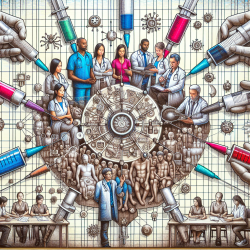The concept of decentralization has been a focal point in discussions about improving healthcare systems worldwide. In the context of the Lao People's Democratic Republic (Lao PDR), decentralization plays a critical role in shaping the country's immunization program. This blog explores findings from a recent study on the decentralization of healthcare in Lao PDR and offers insights for practitioners seeking to enhance their skills and improve service delivery.
Understanding Decentralization in Lao PDR
Lao PDR, a lower-middle-income country in Southeast Asia, has a unique political and healthcare structure. The country's healthcare system is characterized by a deconcentrated form of decentralization, where certain responsibilities are delegated to local governments while ultimate control remains centralized. This structure is influenced by the Marxist-Leninist ideology of democratic centralism, which emphasizes social equality and centralized decision-making.
The study on Lao PDR's National Immunization Program highlights several key findings:
- Centralized Structure: Despite measures promoting decentralization, the healthcare system remains largely centralized. This central control impacts the distribution of resources and decision-making processes at local levels.
- Resource Challenges: The program relies heavily on external donors like GAVI for funding. However, impending economic transitions may alter funding dynamics, necessitating local governments to seek alternative resources.
- Human Resource Shortages: A shortage of skilled healthcare workers at peripheral levels poses significant challenges to effective service delivery.
- Cultural and Linguistic Barriers: Geographical diversity and ethnic variations create challenges in communication and acceptance of immunization programs among local communities.
Opportunities for Practitioners
The study suggests several opportunities for practitioners to improve their skills and contribute to enhancing immunization programs:
- Embrace Technology: The use of social media platforms like WhatsApp has transformed communication within the healthcare system. Practitioners can leverage these tools for better coordination and information sharing across different levels of governance.
- Cultural Sensitivity Training: Understanding cultural and linguistic nuances is crucial for effective community engagement. Practitioners should seek training opportunities that enhance their ability to communicate with diverse populations.
- Advocate for Local Empowerment: While central control remains dominant, there is room for advocating greater autonomy at local levels. Practitioners can play a role in pushing for policy changes that empower local governments to tailor services according to community needs.
- Pursue Further Research: Given the dynamic nature of decentralization and its impact on healthcare delivery, practitioners are encouraged to engage in ongoing research to identify best practices and innovative solutions.
The Way Forward
The findings from the study on Lao PDR's immunization program underscore the complexities of decentralizing healthcare in a single-party state. While challenges persist, there are significant opportunities for practitioners to make impactful changes through technology adoption, cultural sensitivity training, advocacy for local empowerment, and continued research.
To read the original research paper, please follow this link: Decentralization and immunization program in a single-party state: the case of the Lao People’s Democratic Republic.










